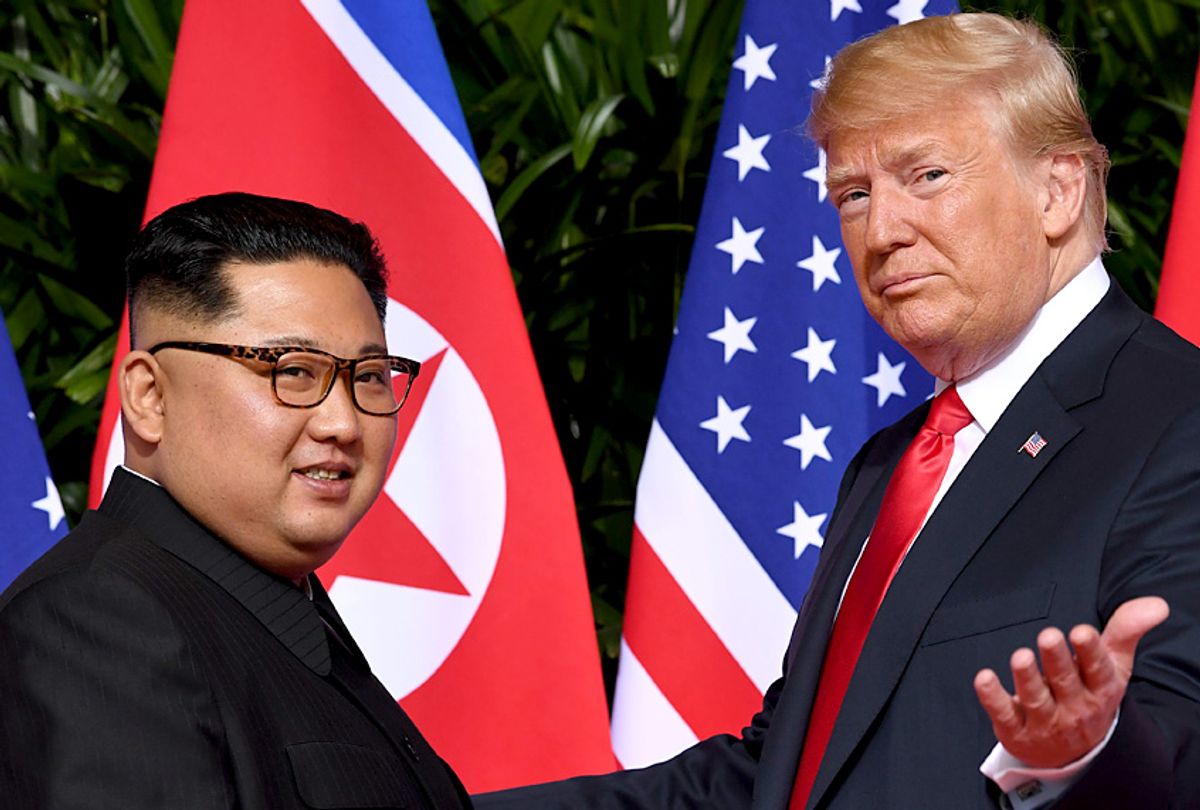President Donald Trump put himself vocally at odds with his own intelligence community after he said he would not have permitted informants to provide the CIA with information about North Korean dictator Kim Jong-un.
"I saw the information about the CIA, with respect to his brother or half-brother. And I would tell him that would not happen under my auspices — that’s for sure. I wouldn’t let that happen under my auspices," Trump told reporters assembled Tuesday on the South Lawn of the White House.
Trump's remarks followed a bombshell Wall Street Journal report, which said that Kim Jong Nam — the mysteriously assassinated half-brother of Kim — had been a source for the American intelligence agency.
In an email to Reuters, Jung Pak — a former senior U.S. intelligence official who now works for the Brooking Institute — said that "the president should understand that to keep the nation safe, the CIA needs to be able to do its job gathering and analyzing intelligence that will support the full range of diplomatic, military and economic policies and initiatives."
Trump's relationship with Kim Jong-un has stirred up continued controversy ever since the president took office. In September, Trump infamously claimed he and Kim "fell in love"," despite having previously been on harsh terms with the North Korean despot. Last month, he went so far as to agree with Kim Jong-un's insult, saying that former Vice President Joe Biden is a "low IQ individual."
Earlier this month, Salon spoke with former U.S. Ambassador Michael McFaul, who represented the Obama administration in Russia. Trump reportedly considered handing over McFaul to Russian President Vladimir Putin for questioning on a variety of trumped-up charges last year.
When Salon discussed Trump's history of cozying up to dictators — including Mohammed bin Salman in Saudi Arabia and Rodrigo Duterte in the Philippines, as well as Kim and Putin — McFaul observed that "I do think President Trump has demonstrated that he has a theory about diplomacy — that is, if he says nice things about these dictators that's going to make them feel better about him and, by implication, that's going to be good for the United States."
He added, "I would say so far the tangible, concrete outcomes that are good for America — good for our security interests, good for our prosperity — of that strategy is very thin. It just hasn't resulted in things that make us better off."
Earlier this year, when speaking to former Secretary of State Madeleine Albright about Trump's policies toward North Korea, she observed that "fat the beginning of the Trump administration, there was a lot of 'fire and fury' talk and threats and things like that, which I thought were counterproductive. I do believe in diplomacy, but I also do believe in prepared diplomacy."
She added, "I was asked whether the Singapore summit was a win-win or a 'Kim win.' It was a 'Kim win,' because the president canceled some exercises that we have with our allies — the Japanese and the South Koreans — and it’s unclear to me what the North Koreans gave or what it is that they put up to this, especially since they have not agreed to any kind of way of an inventory or international way of figuring out what they have and what denuclearization — which is what we are trying to get — what is the measurement of that, what’s going on."



Shares